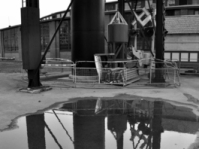A former co-worker recommended this book to me and now that I'm directly part of the industry as an employee of ILM I figured it would behoove me to read it. The book shuns the flashy spectacle of the art and technology behind blockbuster movies and instead dives into the business side of the film industry in general and the Visual Effects (VFX) industry specifically. Although less glamorous, I still found the topic to be quite engaging and relevant as I ponder the future of my career.
It is widely acknowledged that the VFX industry is severely dysfunctional. Race-to-the-bottom bidding wars, endlessly varying government subsidies, intransigent film studios, ego-driven directors, and many other factors all contribute to enormous instability and uncertainty for VFX companies and their employees (especially the artists). Grage outlines all of these factors in the book, providing history and context by examining real world examples of famous effects-driven movies.
Although interesting and engaging the book is far from perfect. The writing is poor, the editing is poor, and as an insider I noticed multiple inaccuracies with respect to ILM and Autodesk (I can only assume that some details for other companies examined in the book were wrong too). I also took some issue with his treatment of inflation (CPI is widely accepted to underestimate inflation, but his alternative measure from SGS is generally considered to be even worse in its overestimation, and he gives it greater standing than CPI). Finally, as a book about a tech-heavy and volatile industry, it already suffers from feeling out of date despite being published in 2014.
Despite all this, I think the general picture Grage paints is still valid. The industry is severely troubled and a major shakeup is both likely and urgently needed. I also think the book finished strong, with a high-level summary of the major problems and very reasonable predictions and suggestions for the future. In particular, the emergence of "experiential" entertainment through virtual and augmented reality systems suggests pathways to diversification for VFX companies.
For anyone in the industry "Inside VFX" is definitely a worthwhile read, simply for the historical context alone. People interested in film might enjoy it too, but I can't imagine anyone else reading it to the end.


